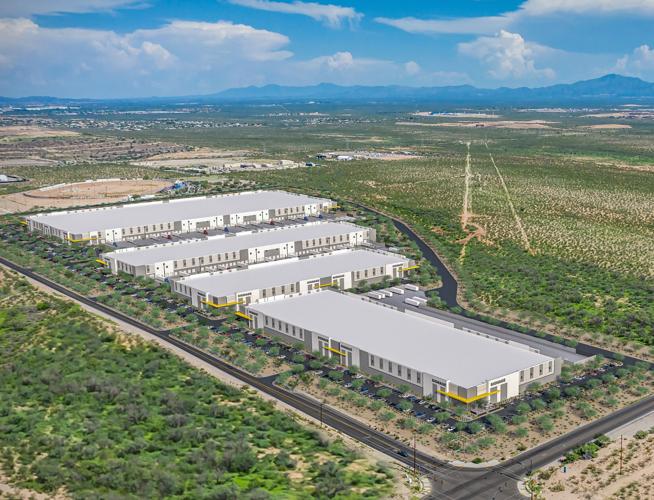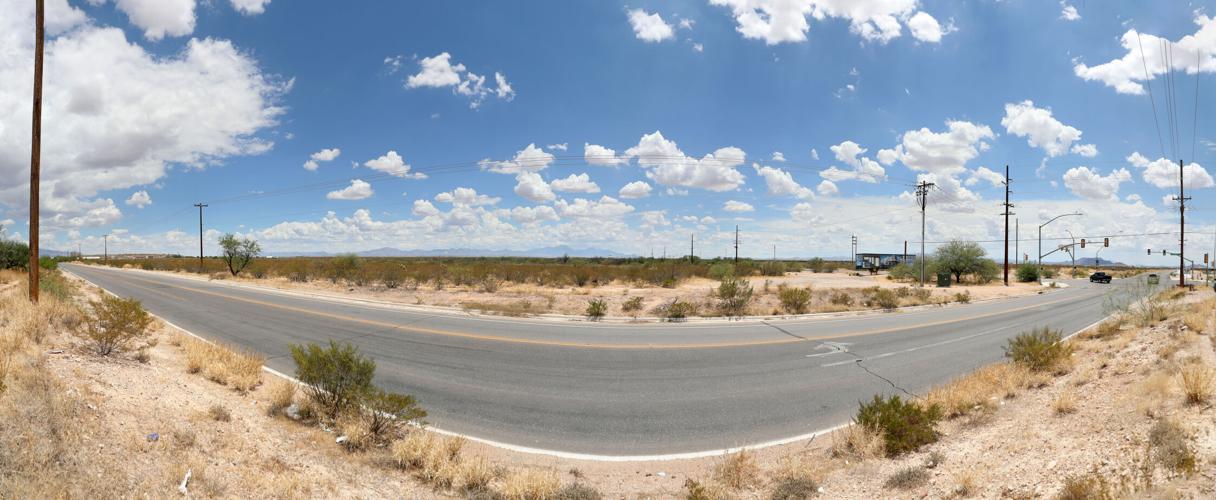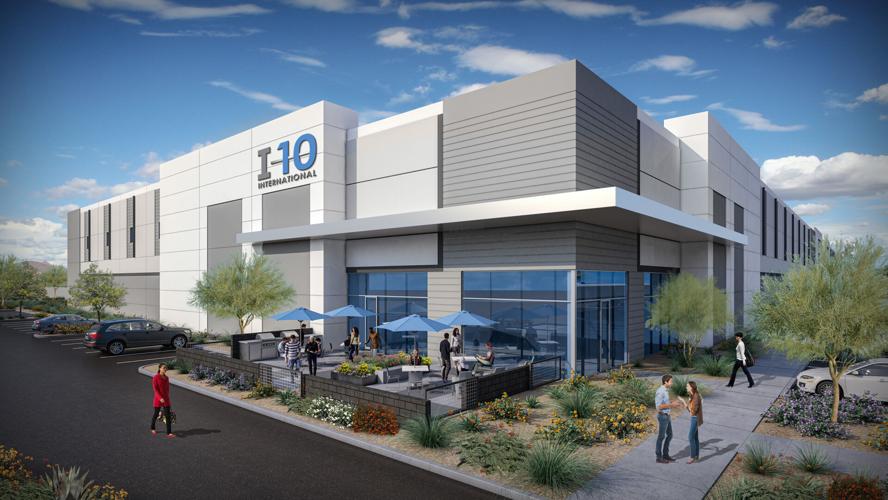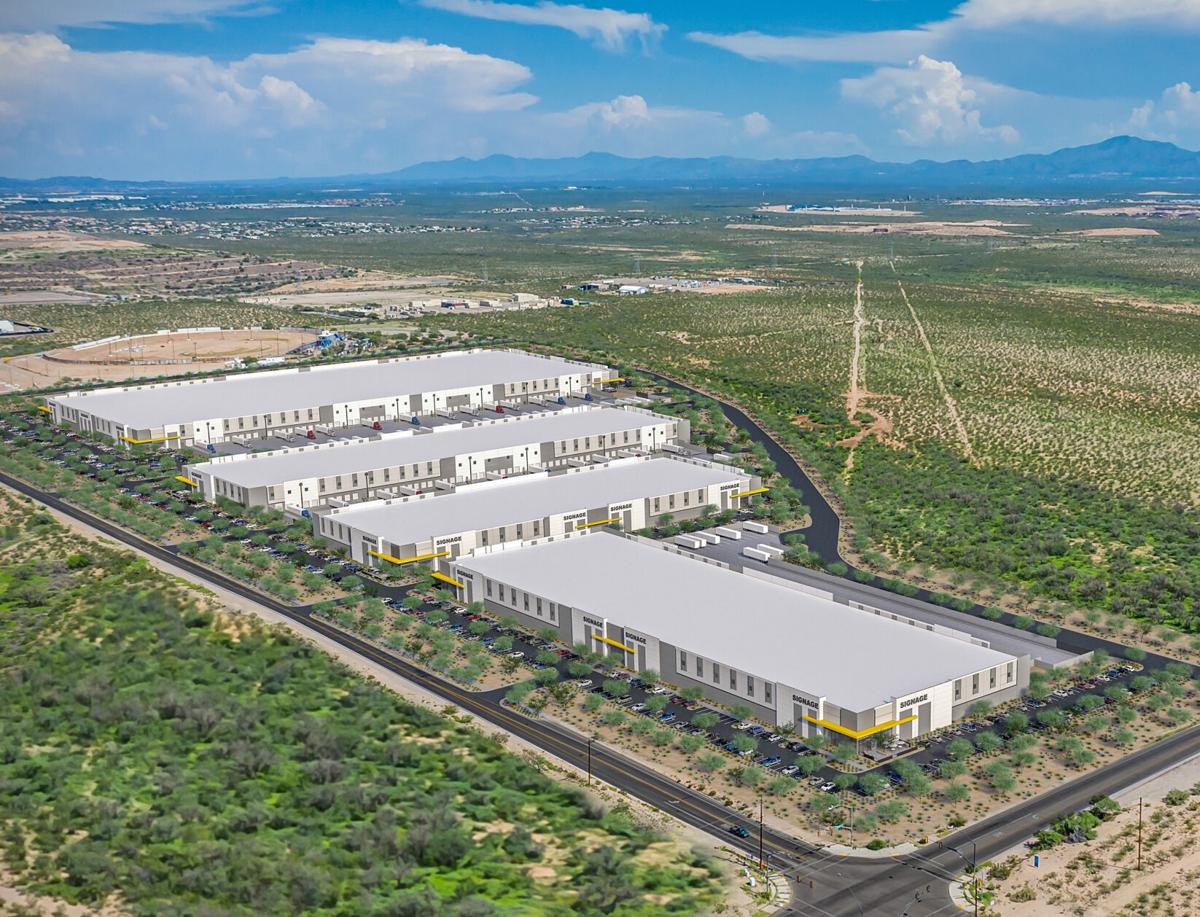Cheaper land, less regulation and access to major markets has put Tucson on the map for warehouse and distribution facilities.
In the last five years, Tucson has added more than 3 million square feet of industrial space.
And a Dallas company has chosen Tucson to add even more.
LPC Desert West, a division of Lincoln Property Co., plans to develop more than 1 million square feet of industrial space for warehousing and distribution on the southeast corner of Alvernon Way and Los Reales Road.
Called I-10 International, the property will have four buildings of varying sizes with cold storage capability.
“This site has tremendous location advantages, being proximate to I-10, I-19 and Tucson International Airport, with direct connection to major ports and cities in the U.S. and Mexico,” said Doug Klocke, vice president of Lincoln Property Co. “We (will) take full advantage of this location, which includes the ability to distribute product to 46 million people within a 500-mile radius.”
The company said the site will be flexible and work for a single large user or multiple smaller users, such as those in the food and beverage industry because of the cold storage capacity.
LPC bought the I-10 International land site from Tucson-based real estate development and investment company Diamond Ventures for $6.5 million.
Construction is scheduled to begin later this year and be completed in 2023.
Geography, cost enticing
The geographical attraction Tucson offers includes access to the interstates, the Union Pacific mainline, an inland port and the airport’s airfreight capacity.
The city is also known for having a good workforce and land costs of between $3 and $6 per square foot compare nicely to the Phoenix market’s rates of $9 to $13 per square foot or $25 to $32 per square foot in Southern California, noted Robert Glaser, an industrial broker with Picor Commercial Real Estate.
While a few years ago, brokers lamented the lack of modern industrial space, today there are several projects popping up.

A panoramic photo from four images of the plot of land on the southeast corner of Los Reales Road and Alvernon Way where Lincoln Properties is planing a one-million square foot facility.
“It’s been a long time coming,” said Jesse Blum, an industrial specialist with Picor.
He said after the Great Recession, Tucson was late to recover so new construction was not viable.
Then in 2018, Oregon-based Harsch Investment Properties entered the Tucson market and built one of the first speculative industrial buildings in more than a decade.
“They acted like a bellwether for Tucson and everyone was watching their first building to see if if would succeed,” Blum said. “They were early believers in Tucson and shouldered the risk of failure and proved their own theory of Tucson.”
The 157,000-square-foot facility at 6850 S. Brosius Ave., near the airport was fully leased before construction was finished.
The company, which goes by Schnitzer Properties LLC, has since built other industrial buildings on spec and recently bought raw land in the 6100 block of South Country Club Road and in the 3100 block on east Elvira Road for more industrial space.

Construction on the facility is scheduled to begin later this year and be completed in 2023.
The demand is fueled by the shopping habit of Southern Arizona residents.
“When Amazon pioneered that 8-to-12-hour delivery service — you can’t do that if things are in a warehouse in a different city,” Blum said. “Then the pandemic hit and perpetuated an online shopper that wouldn’t have done that in the past, i.e. the elderly who, for safety, had to purchase online and the industry was immediately fast-forwarded by 20 years.”
The pandemic also put Tucson on the radar when it became a top Googled city for people looking to relocate and work remotely.
Blum said industrial investment equals jobs.
“There’s a huge sub-sect of our community that are proudly blue collar and they need jobs,” he said. “It’s dollars into the local economy.”
The industry also absorbs land that is not appealing to other development.
“It’s a nice tax generating sector in areas that are considered to be blighted,” Blum said, “and that will never be used for housing.”






